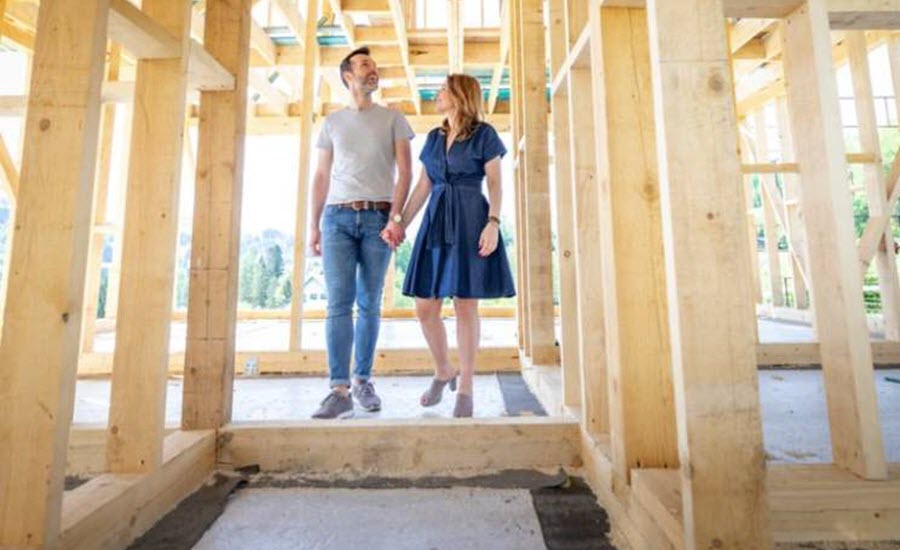
 Popular Cities For Lending in South Carolina
Popular Cities For Lending in South Carolina
Greenville
Greer
Hilton Head Island
Mount Pleasant
Myrtle Beach
North Charleston
Rock Hill
Spartanburg
Summerville
Sumter
In the South Carolina real estate market, grabbing properties before your competition is essential for making the best deals. Although real estate investors sometimes go the traditional route and seek bank loans, the process is anything but speedy.
When time is of the essence, waiting for the lengthy process of getting approval is not an option for most investors. South Carolina hard money lenders specialize in providing hard money loans which provide quick funds to investors. These loans are for a non owner occupied property or in some cases for business purpose loans.
South Carolina Hard Money Lender FAQ’S
Below are some of the most frequently asked questions we get regarding hard money loans and lenders in South Carolina.
What Do South Carolina Hard Money Lenders Specialize in?
South Carolina hard money lenders specialize in providing short-term, creative financing for real estate investors. If you seek a conventional lender to purchase an investment property, your loan request will be based on the property’s value and your assets. Your credit score, job, and finances will be scrutinized intensely. Hard money lenders base their final loan decisions on the after-repair value. The ARV represents the potential value of a property after all repairs have been accomplished.
What are the Benefits of South Carolina Hard Money Loans?
South Carolina hard money loans offer advantages that traditional banks cannot. Lenders like Acamnet Financial offer a higher level of flexibility than banks. When qualifying for this type of loan, lenders do not delve too deeply into the finances of real estate investors. In most cases, simply present the property and your plans, which saves you the hassle of gathering countless financial documents.
Do South Carolina Hard Money Lenders Look at my Credit Score?
One of the greatest benefits of working with South Carolina hard money lenders is the lack of credit score requirements. One of the first things a bank does is check your credit score. You can get approved for a hard money loan in South Carolina even if you have bad credit or poor credit, bankruptcies, and foreclosures in the past. South Carolina Hard money lenders primarily care about the property you are purchasing.
What is the Interest Rate & Points for Hard Money Loans in South Carolina?
Interest rates for hard money loans in South Carolina are typically higher than traditional bank loans (conventional loans) because of the greater risk lenders must take on when approving loans. When searching for a hard money lender near me in South Carolina, you will find average interest rate is between 8%-15%. You should also be aware that lenders sometimes charge points that are meant to offset their administrative costs. Each point represents 1% of the total loan amount. The average points lenders charge is between 1 to 3. Some lenders may charge up to 10 points. These points are due upfront or at closing, depending on the lender.
What Should I Look for in a South Carolina Hard Money Lender?
There are many benefits to working with a South Carolina hard money lender. You just need to make sure you are working with the right lender. You can rely on Acamnet Financial Group when you need us most. We offer reliability, consistency, experience, and support. As a real estate investor, you know the importance of grabbing the best property deals when they become available.
How can Hard Money Lenders in South Carolina Help Me?
Whether you are new to real estate and real estate projects or an old pro, you know having the capital to purchase real estate is essential. Without funds, you will miss out on real estate transactions. When you partner with hard money lenders in South Carolina, you will quickly get the money you need without jumping through the hoops of traditional bank lenders.
How do I get a Hard Money Loan in South Carolina?
When you want a hard money loan in South Carolina, begin by preparing the property information. Location, size, purchase price, after repair value, repair costs, etc. In most cases, the financing will be based on these numbers. Then, apply for a hard money loan in South Carolina using this information and supply some financial information. Then, an appraisal will be ordered to assess the loan-to-value ratio, which will influence the loan amount.
How do I Refinance a South Carolina Hard Money Loan?
Refinance a South Carolina hard money loan will involve moving from a high interest, short term loan to a longer term, usually lower interest rate loan. Typically a conventional type of loan. When refinancing a South Carolina hard money loan you will find it will have a more stringent set of guidelines. You will need to have sufficient credit and income qualifications. As the lending landscaping and regulations constantly change, you want to consult a knowledgeable conventional loan expert.

Current Real Estate Trends In South Carolina (2024)
The South Carolina real estate market is currently seeing both difficulties and positive growth.
There is a visible demand-supply discrepancy for low-income households, plus increasing mortgage rates and a housing cost load for households with earnings between $35,000 and $75,000 annually.
However, there are also signs of good growth, as house values are rising and homes are selling quickly.
Prospects for Metropolitan Statistical Areas (MSAs) in South Carolina indicate possible opportunities for buyers and sellers, with expected percentage changes in house prices.
Even with worries about a possible market crash, caused by factors such as rapid growth, interest rate fluctuations, government policies, demographic changes, and natural disasters, local data does not support these rumors.
In addition, South Carolina offers advantages such as a pleasant climate and a reasonable cost of living.
This article provides a comprehensive analysis of the present real estate trends in South Carolina, examining the housing market outlook, factors sustaining stability, and market predictions.
Housing Market Outlook
The outlook for South Carolina’s housing market suggests a potential slowdown in 2023 but not a crash. Mortgage rates remain stable and inventory levels are limited, contributing to stable home prices. Economic growth has attracted buyers, particularly millennials and Hispanics, yet the shortage of newly constructed homes is limiting the inventory growth. Lending standards remain stringent, requiring borrowers to have excellent credit scores.
Though home prices are increasing, it is not at a rapid rate. The competition for limited housing has led to bidding over the listing prices. Despite this, the housing market in South Carolina is not in danger of a crash due to the consistent mortgage rates, availability of housing, and strict lending standards.
In summary, the current outlook for South Carolina’s housing market is relatively stable, though buyers should expect some competition for the limited housing. The mortgage rates, limited inventory, and stringent lending standards all contribute to keeping the market from crashing.
Factors Supporting Stability
The housing market appears to be stable, likely due to a combination of factors.
One of these is a shortage of new builds, which limits the growth of supply.
There are also strict lending standards, which make it harder for people to obtain mortgages unless their credit scores are high.
Homeowners’ financial situations have improved, resulting in fewer foreclosures.
Low mortgage rates are further driving buyer confidence in the market.
All of this points to a balanced market where demand is strong and supply is limited.
Market Predictions
The South Carolina housing market may be facing a slowdown in growth due to the recent stabilization of mortgage rates and a decrease in buyer demand. Evidence for this can be seen in the decreasing number of homes sold and the median time to contract increasing. Nevertheless, the low inventory levels and the limited supply of newly constructed houses may help stabilize home prices. It is difficult to determine if it is currently a buyers or sellers market in South Carolina.
Sources
https://www.noradarealestate.com/blog/south-carolina-housing-market/
https://www.houzeo.com/blog/south-carolina-real-estate-market/
https://www.thestate.com/news/state/south-carolina/article275301651.html

All About South Carolina
South Carolina, located in the coastal Southeastern region of the United States, possesses a diverse geography and a rich historical background. Bordered by North Carolina, the Atlantic Ocean, and Georgia, the state is home to a population of 5,124,712 as of the 2020 census.
Its economy thrives on various industries, including aerospace, agribusiness, automotive manufacturing, and tourism. South Carolina played a crucial role in the American Revolutionary War and was the first state to vote for secession from the Union in 1860.
Originally inhabited by Native American tribes such as the Cherokee and Catawba, the state is divided into three primary geographic regions: the Atlantic coastal plain, Piedmont, and the Blue Ridge Mountains. Over time, South Carolina has witnessed significant historical events, such as colonization, the American Revolution, the Civil War, and the civil rights movement.
In recent years, the state has experienced economic growth, attracting new businesses and witnessing advancements in manufacturing and tourism.
South Carolina Overview
South Carolina is located in the coastal Southeastern region of the United States, characterized by its diverse geography, including the Atlantic coastal plain, Piedmont, and the Blue Ridge Mountains.
With its prime location, South Carolina offers a variety of natural landscapes and attractions for residents and visitors alike. The Atlantic coastal plain stretches along the eastern coast and is known for its salt marshes and estuaries.
Moving inland, the Piedmont region features rolling hills and fertile farmland. The state’s northwestern corner is home to the picturesque Blue Ridge Mountains.
In addition to its geography, South Carolina experiences a humid subtropical climate with hot, humid summers and mild winters. This unique combination of geography and climate sets the stage for exploring South Carolina’s diverse natural beauty and rich history.
Geography and Climate
Located in the southeastern region of the United States, the state of South Carolina is characterized by a diverse geography and a humid subtropical climate.
The state is divided into three main geographic regions: the Atlantic coastal plain, the Piedmont, and the Blue Ridge Mountains.
The eastern coastal plain is known for its salt marshes and estuaries, while the southeastern Lowcountry is home to the Sea Islands.
In the northwestern corner of Upstate South Carolina, the Blue Ridge Mountains provide a scenic backdrop.
The state experiences hot, humid summers and mild winters due to its humid subtropical climate.
The diverse geography and climate of South Carolina contribute to its rich natural beauty and offer a variety of recreational opportunities for residents and visitors alike.
Moving on to the subsequent section about the economy and industries, South Carolina has a thriving economy driven by aerospace, agribusiness, automotive manufacturing, and tourism.
Economy and Industries
Various industries, including aerospace, agribusiness, automotive manufacturing, and tourism, drive the economy of the state of South Carolina.
The state has a thriving aerospace sector, with major companies like Boeing and Lockheed Martin having a significant presence.
Agribusiness is also a significant contributor to the state’s economy, with South Carolina being a leading producer of crops such as tobacco, soybeans, and peaches.
The automotive manufacturing industry is another important sector, with significant automobile manufacturers like BMW and Volvo having manufacturing plants in the state.
Additionally, tourism plays a significant role in South Carolina’s economy, with attractions like the historic city of Charleston, Myrtle Beach, and the scenic Blue Ridge Mountains drawing visitors from all over.
This solid economic foundation sets the stage for understanding the history and colonization of South Carolina.
History and Colonization
Named in honor of King Charles I of England, the province of Carolina was established in 1629. Eventually, it became a royal colony in 1719, playing a significant role in the American Revolutionary War. Exploration and colonization efforts by various European powers mark South Carolina’s early history. The province thrived on agriculture, with rice plantations in the Lowcountry and the development of indigo plant cultivation.
The region also saw the rise of a majority African slave population by 1720. The influence of philosopher John Locke can be seen in the development of the Grand Model for the Province of Carolina and the utopian ideals it espoused.
South Carolina’s history as a royal colony shaped its identity and set the stage for the pivotal events of the Civil War and Reconstruction period, which will be explored in the subsequent section.
Civil War and Reconstruction
The tumultuous period of the Civil War and Reconstruction in South Carolina witnessed crucial events that shaped its history and left a lasting impact on the region.
During the Civil War, South Carolina played a significant role as the first state to secede from the Union in 1860. The Confederate attack on Fort Sumter in Charleston marked the beginning of the war, and Union forces occupied Beaufort County and the Sea Islands. The war resulted in devastating losses, with over 60,000 soldiers serving and 18,000 troops lost.
Following the war, South Carolina experienced a period of Reconstruction, during which the state invalidated ordinances of secession and regained representation in Congress in 1868. However, voter fraud by Democrats and former Confederates resulted in a majority-black government, and habeas corpus was suspended to suppress violence by the Ku Klux Klan.
This period of Reconstruction had a significant impact on the state’s political and social landscape.


 Popular Cities For Lending in South Carolina
Popular Cities For Lending in South Carolina